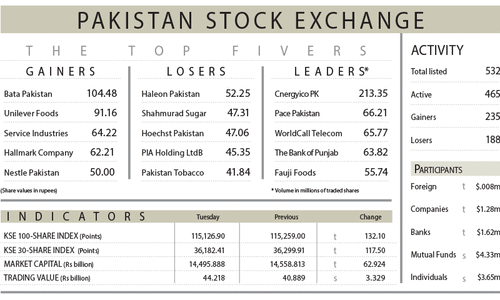RIYADH, Aug 23: Over the last few days, thanks to the rising tension in Georgia and the weakening dollar, oil has regained some of the lost ground. Yet, most people believe that the markets are in for further erosion provided indeed, the geopolitical issues don’t get out of hand.
Tehran’s Opec governor Mohammad Ali Khatibi says that the cartel could decide to rollover or even cut production from existing levels when it meets in Vienna early September.
He felt the oil market was oversupplied by around 1.3 million barrels per day.
However, he admitted that the peak winter demand could absorb most of this excess - unless the slowing economy takes a bigger bite out of consumption.
Venezuela is also insisting on reviewing the cartel’s output at its next ministerial meeting.
The International Energy Agency (EIA) now believes that in the emerging scenario even Saudi Arabia may be tempted to curtail its output. Saudi July production was reported at a high 9.7 million bpd.
Interestingly, after a long time, the issue of abiding by the Opec output quotas is also back under hammer. The group’s President Chakib Khelil, while on a visit to Iran last week, emphasised on the Opec members to keep oil output within the agreed targets.
Underlining the rapidly changing market dynamics, the IEA has now cut its 2008 oil demand forecast from the Opec by 100,000 bpd, from its previous projections, despite raising the forecast for non-Opec supply.
Despite raising its forecast for global oil demand by 70,000 to 87.8 million bpd the next year, the IEA estimated the call on Opec’s crude in 2009 to average 31.33 million barrels a day, an increase of 90,000 from its previous estimate.
Within hours of the release of the IEA’s sober assessment of the outlook for oil markets, the US Energy Information Administration said US demand had also fallen by 800,000 barrels a day in the first half of the year, the largest decline for 26 years.
In the meantime, the Opec forecast for 2009 oil demand growth remained unchanged at the lowest rate in seven years and warned that consumption could fall even further.
The 13 member group left the rate at 1.03 per cent, the narrowest since 2002, even after raising its estimates of daily demand in 2008 and 2009 by 90,000 barrels.
“Risks to the outlook for the world oil market appear to be on the downside,’’ the Opec report said. Global oil consumption will average 86.9 million barrels a day this year and 87.8 million barrels a day in 2009.
The London-based Centre for Global Energy Studies (CGES) in its monthly oil report also points to the worsening economic outlook suggesting that oil prices have further to fall.
The CGES report says that recent figures have shown that oil demand was contracting significantly in the OECD countries, while the reduction of subsidies in several emerging markets was also expected to have an impact on non-OECD demand.
The CGES emphasises, “This would be a new experience for the oil industry and Opec in particular, because global oil demand last contracted in 1993, and before that in the early 1980s.
Opec has been living for years now in a world of growing oil consumption without investing in much additional capacity.
Dealing with falling oil demand is quite different, requiring coordinated cutbacks in oil production to prevent oil prices from crashing. This is an immense challenge for Opec with a history of cracking under pressure.














































Dear visitor, the comments section is undergoing an overhaul and will return soon.